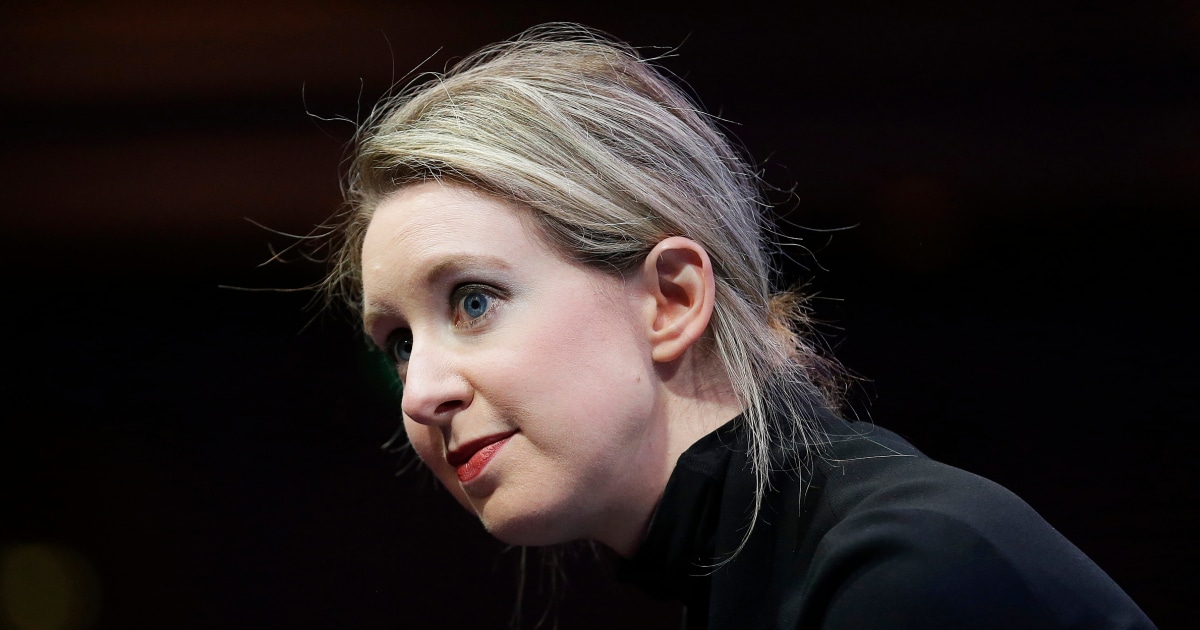
Theranos founder Elizabeth Holmes was convicted of four federal fraud charges Monday for defrauding investors by exaggerating the capabilities, revenue and reach of her failed blood testing company.
Out of the eleven charges, Holmes was acquitted on all of the charges relating to patient fraud and one charge of conspiracy. The jury remained deadlocked on three of the investor charge fraud.
In total, Holmes was found guilty on over $140 million in investor fraud, including nearly $100 million from Lakeshore Capital Management, a fund connected to the family office of former Education Secretary Betsy DeVos.
As the verdict was read out, Holmes appeared stoic, sitting much as she had during the course of the trial, bolt upright and nearly motionless.
Afterward she went to the court railing and hugged her parents before exiting into the counsel room with her team of lawyers.
Holmes faces a maximum of 20 years of prison time per charge, likely to be served concurrently, depending on the results of her sentencing.
No sentencing hearing has been set as of yet and Holmes remains at liberty on bond.
Holmes, 37, was the force behind a modernized blood test, advertising a cheap finger prick that could offer comprehensive results for a number of medical issues. But The Wall Street Journal reported in 2015 that Theranos devices were inaccurate, beginning the company’s eventual downfall.
She initially faced 12 fraud counts, but the ninth, referring to an individual patient, was dismissed earlier in her trial, the result of an earlier error by prosecutors. Holmes potentially faced 20 years in prison, fines and potential restitution to defrauded investors.
The jury spent seven days going over the evidence and charges. On the third day of deliberations, jurors asked the judge to listen to audio clips of a 2013 call Holmes had with investors.
A week into deliberations, the jury sent a note that said it was deadlocked on three charges. Judge Edward J. Davila, at the prosecutor’s request, read the jury instructions known as an “Allen charge” — telling them to resume deliberations and attempt to reach a verdict on the outstanding charges.
The jury remained unable to reach a unanimous verdict, they said in another note Monday.
Federal prosecutors have said that Holmes intentionally duped investors into supporting a product she knew was faulty, particularly as Theranos began to teeter on bankruptcy.
“This is a case about fraud, about lying and cheating to get money,” Assistant U.S. Attorney Robert Leach said in opening arguments.
The government’s case included text messages between Holmes’ former business partner and ex-boyfriend, Ramesh “Sunny” Balwani, discussing Wall Street Journal reporter John Carreyrou. The couple expressed concerns over Carreyrou writing a negative article, with Balwani promising to “nail” the reporter.
Balwani, who is facing his own charges and a separate trial, did not speak at Holmes’ trial.
In her own testimony, Holmes repeatedly told prosecutors that she genuinely believed the statements she made to investors were true.
“At the time, you were not worried people would be given an inaccurate impression?” Leach asked her.
“I was not,” Holmes said.
During cross-examination, Holmes admitted that allegations raised by former Theranos employee Erika Cheung — who expressed concerns several times about quality issues with the company’s signature blood-testing devices — were true.
“I sure as hell wish we treated her differently and listened to her,” Holmes said. She then answered that she now understood that Cheung’s concerns were correct.
The defense attempted to paint Holmes in a more humanizing light as a young visionary who made mistakes, countering the prosecution’s characterization of her as shrewd and calculating.
Holmes dropped out of Stanford University in 2004 to try to invent a microfluidic blood diagnostics system. She became the world’s youngest female self-made billionaire and her company was valued at over $9 billion.
Defense attorney Kevin Downey asked Holmes to recount the early days of Theranos, as she sought advisers through the Stanford community, developed a business plan, attracted investment, and — she thought — “nailed” expectations.
He asked her whether she ever intended to mislead her investors.
“No,” Holmes said.
Source: | This article originally belongs to Nbcnews.com










